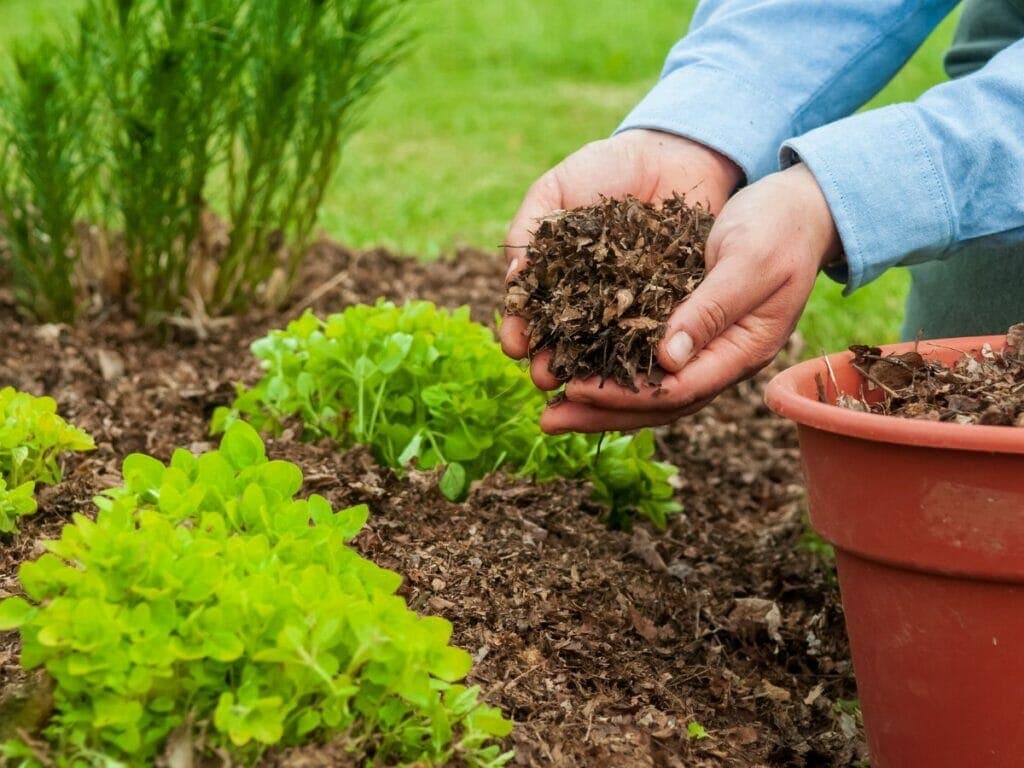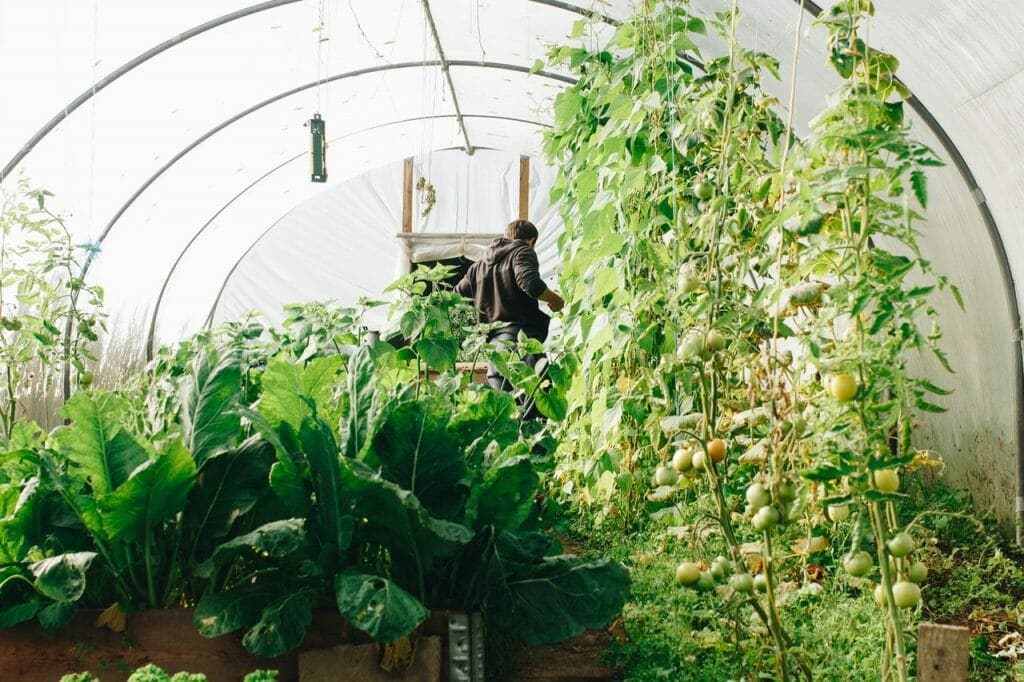The Many Benefits of Mulching Your Garden
Mulching is often thought of as a necessary evil – something that needs to be done to keep the weeds at bay and the soil moist. But what if we told you that mulching offers a whole host of benefits for your garden, from controlling weeds to improving soil quality? In this blog post, we’ll explore all the benefits of mulching and show you how easy it is to get started.
Benefit #1: Mulching controls weeds.
Weeds compete with plants for water, space, and sunlight, so by smothering them with mulch, you can give your plants a much-needed leg up. But mulching does more than just control weeds; it also helps to insulate the soil, retain moisture, and add nutrients. In this blog post, we’ll take a closer look at each of these benefits in turn.
Mulching Helps to Control Weeds
As we mentioned above, one of the key benefits of mulching is that it helps to control weeds. Weeds are types of plants that grow where they are not wanted. They compete with crops and garden plants for water, sunlight, and space. Some types of weeds can also harbor diseases that can infect other plants.
Mulching helps to control weeds in a number of ways. First, it prevents weed seeds from germinating by blocking out the sunlight they need to grow. Second, it inhibits the growth of existing weeds by depriving them of the moisture they need to survive. Third, it smothers them physically, preventing them from putting down roots or spreading their seeds.
Mulching helps to Insulate Soil
Another important benefit of mulching is that it helps to insulate soil. This is especially important in hot climates where the sun can quickly dry out the top layer of soil, making it difficult for plants to grow. By placing a layer of mulch on top of the soil, you can help to keep it moist and reduce evaporation.
In cold climates, mulch can also help to insulate plant roots from the cold weather. This is because mulch acts as an insulator, trapping heat in the ground and protecting roots from extreme temperatures. This can help to extend the growing season and improve plant survival rates in cold winters.
Meanwhile, in hot summers, mulch can help to keep roots cool and prevent them from drying out due to heat stress.
Mulching also helps to create microclimates around plants which can protect them from extreme weather conditions such as strong winds or heavy rainstorms.
Mulching Helps Retain Moisture
Mulch does an excellent job of retaining moisture in the soil which can be very beneficial for plant growth. This is because mulch acts as a barrier between the soil and the air which prevents water from evaporating quickly. In hot climates, this can be especially important because it means that watering your plants less often as the mulch will help to keep the ground moist for longer periods of time, allowing your plants to stay hydrated even during periods of drought conditions.
Mulching Adds Nutrients As It Breaks Down
Over time, organic mulches such as wood chips and bark will break down and decompose into the soil, adding essential nutrients such as nitrogen, which are vital for plant growth. This process is called composting and it occurs when microbes such as bacteria and fungi break down organic matter into simpler compounds that can be used by plants.. Not only does this provide a source of nutrition for your plants, but it also improves drainage and aeration in compacted soils, making it easier for roots to spread..”
Benefit #2: Mulching conserves moisture.
Another garden chore that mulch can help with is watering. By keeping the soil beneath your plants covered, mulch helps to prevent evaporation and keeps the roots cooler in summer. This means that your plants will need less water overall, which is great news for both your wallet and the environment.
Mulching conserves moisture by preventing evaporation from the soil surface. It does this by creating a barrier between the soil and the air. Mulch also helps to prevent weed growth by smothering weed seeds and blocking sunlight from reaching them. This can save you hours spent pulling weeds by hand.

Mulching Helps Prevent Evaporation
One of the reasons mulching is so effective at conserving moisture is that it helps prevent evaporation. When water evaporates, it takes heat with it, which can cause the surrounding air to become dry and HOT. By creating a barrier between the soil and the air, mulch helps reduce evaporation and keep your soil moist.
Mulching Also Reduces Water Loss from Wind
Another way mulch helps conserve moisture is by reducing water loss from wind. Warm winds can cause water to evaporate quickly, especially if the sun is shining on the soil. By creating a barrier with mulch, you can protect your soil from wind and prevent water loss.
Mulching Keeps Soil Cooler in Summer Months
Mulch also helps keep the soil cooler in the summer months, which can be beneficial for both plants and humans. Soil that is too hot can damage plant roots and make it difficult for people to work in the garden. By keeping the soil cooler, mulch helps reduce water loss and stress on plants.
There are many different types of mulch available on the market, such as leaves, grass clippings, wood chips, and bark mulch. Each type of mulch has its own set of benefits and drawbacks. For example, leaves break down quickly and need to be replaced more often than other types of mulch. Grass clippings can contain chemicals that may be harmful to plants. Wood chips last longer but can be more expensive. Bark mulch is long-lasting but can be difficult to spread evenly.
Mulching is an easy and effective way to conserve moisture, prevent weed growth, and protect plants from extreme temperatures. There are many different types of mulch available on the market, so be sure to choose the type that best suits your needs. With a little bit of effort, you can save yourself time and money in the long run by using mulch in your garden or landscape.
Benefit #3: Mulching improves soil quality.
Organic mulches gradually break down over time, adding valuable nutrients and organic matter to your soil. This process helps to improve drainage and aeration while also increasing moisture retention. Not only does this lead to healthier plants, but it also reduces the need for fertilizers and other soil amendments.
Mulching is beneficial for soil quality because it helps to regulate temperature and moisture levels. For example, during hot summer days, mulch helps to keep the roots of your plants cooler by shielding them from direct sunlight. In addition, mulch helps the soil to retain moisture by slowing evaporation. This is especially important during periods of drought.
Mulching also helps to improve the structure of the soil. As organic matter decomposes, it creates humus—a dark brown or black substance that is rich in nutrients and helps to improve drainage. A well-structured soil is important for plant growth because it allows roots to penetrate deeply and absorb more water and nutrients.
Finally, mulching can help to suppress weeds. Weeds compete with your plants for water, light, and space. By smothering them with a layer of mulch, you can reduce their growth and prevent them from taking over your garden beds.
Mulching is a simple but effective way to improve the quality of your soil. By regulating temperature and moisture levels, improving drainage, and suppressing weeds, mulch can help your plants to thrive.
Conclusion:
As you can see, mulching offers a whole host of benefits for your garden. So why not give it a try? You might be surprised at just how much it can improve the health of your plants and the quality of your soil.



